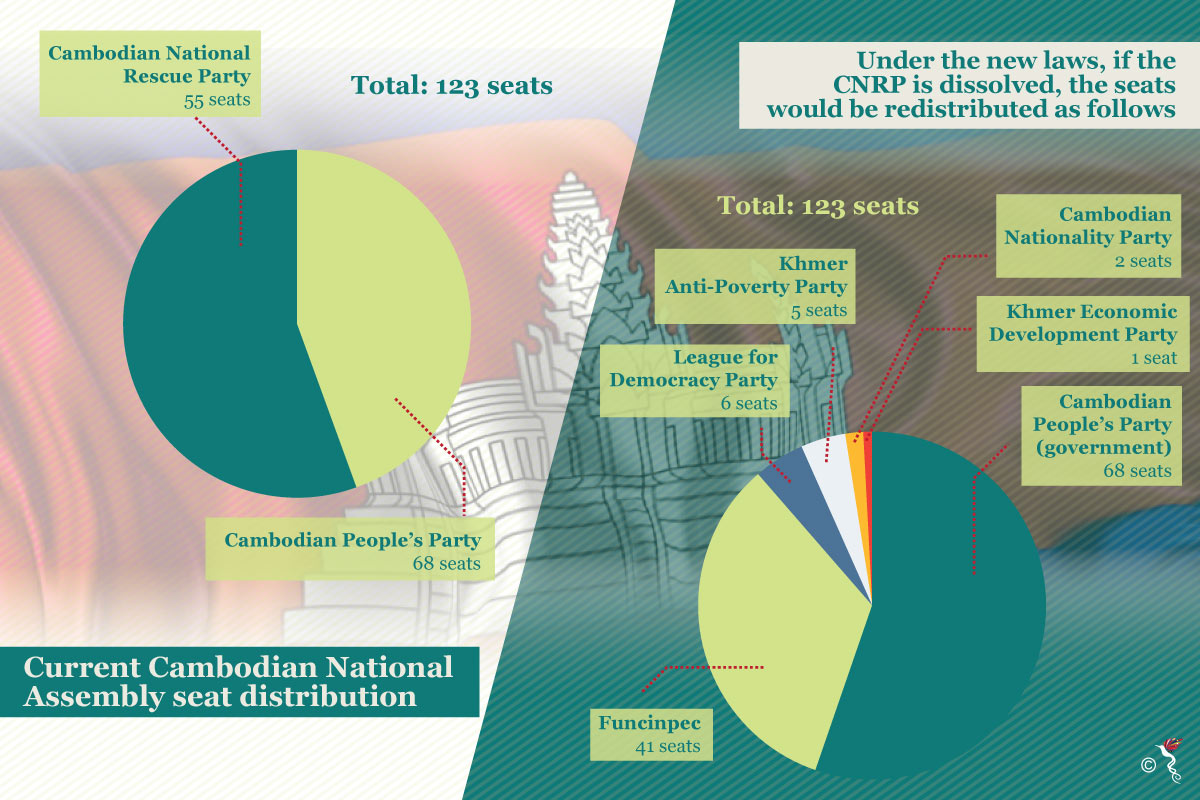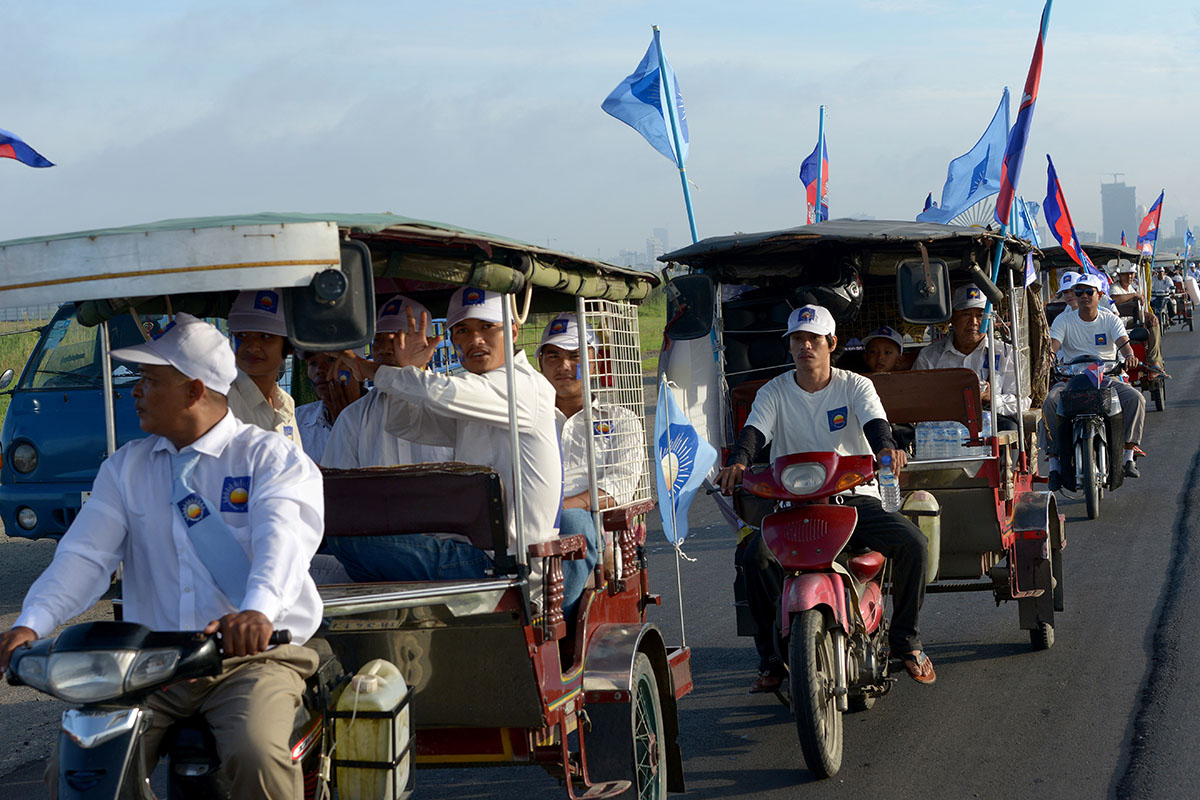Cambodian Prime Minister Hun Sen’s 32-year grip on the nation has tightened further when the country’s parliament passed amendments to the laws governing political parties which would redistribute seats to smaller parties if the opposition Cambodian National Rescue Party (CNRP) is dissolved.
67 MPs (member of parliaments) of the ruling party including Hun Sen himself voted in favour of the amendment which passed without any debate. There were no CNRP MPs present for the vote.
According to one government lawmaker, Cheam Yeap, who was quoted by AFP (Agence France-Presse), such a move was necessary because of the “shifting political situation.”
Smaller opposition parties stand to benefit in the event of the CNRP’s dissolution. If that happens, the 55 parliamentary seats which CNRP currently holds would go to the royalist Funcinpec Party, the Khmer Anti-Poverty Party (KAPP), the League for Democracy Party (LDP), the Khmer Economic Development Party (KEDP) and the Cambodian Nationality Party (CNP).

Seat redistribution in the event of the CNRP’s (Cambodian National Rescue Party) dissolution.
In an act of political debauchery, the complaints which were forwarded by the Interior Ministry to the Cambodian Supreme Court, were initially made by two minor opposition parties – the Funcinpec Party and Cambodian Youth Party (CYP).
Under current law, Hun Sen’s Cambodian People’s Party (CPP) is expected to grab all of the CNRP's 489 commune chief seats if the latter is dissolved.
According to author of "Hun Sen’s Cambodia", Sebastian Strangio, these smaller parties are not acting in the interest of the law but on the orders of the CPP for their own gain.
“It’s fairly clear to me that both of these parties have been attached to the patron client networks of Hun Sen and the CPP and are expecting to derive political and economic gain from that connection,” he told The ASEAN Post in a telephone interview.
Hun Sen who suffered heavy losses during local elections in June has been on an onslaught against his critics. His hardest blow to the opposition came when he arrested opposition leader, Kem Sokha and threatened to imprison more opposition politicians which led to a massive exodus of opposition MPs from the country.
Hun Sen’s main contention is that Sokha conspired with foreign entities in Washington to oust the current administration. International organisations and countries like the US have condemned this as a politically motivated action and has called for Sokha’s immediate release.
The Cambodian political system has allowed Hun Sen to systematically accumulate power and have complete control over all branches of government. As Prime Minister and leader of the CPP, he has taken advantage of his party’s majority in parliament to rush through legislation which severely cripple the CNRP.
Besides that, the judiciary has for long been acquiescent to Hun Sen’s biddings and in his latest slew of measures against the CNRP, the Cambodian Supreme Court is likely to judge in favour of disbanding the CNRP.
Associate Professor of Diplomacy & World Affairs at Occidental College, Los Angeles, Sophal Ear, remarked that Hun Sen’s latest move is a display of the extent of his power in Cambodian political affairs.
“When you cannot win, but are in power, you may dissolve your opposition and recreate it,” he stated in an email reply.
The CNRP’s fate is now hanging by a thread. Worse still, the fear of incarceration is driving opposition MPs into self-exile, leaving the opposition bench leaderless and in shambles.
When asked if it’s is the right decision for these lawmakers to make despite the risks that ensue, Ear replied that sometimes it’s better for these politicians to fight the battle from outside Cambodia and raise more international awareness on the country’s political situation.
“I think some must go to make a clarion call for the world to know. Others can stay. No-one can say, hey, go to jail and suffer. It is up to each person to decide how best they can contribute. Sometimes it's within Cambodia. Other times it's from outside,” he remarked.
Cambodia’s state of democracy is getting from bad to worse. The death knell to the opposition will likely come if the court rules in favour of disbanding the CNRP – a ruling it is expected to make by the end of this year. Until then, the opposition remains on life support.
